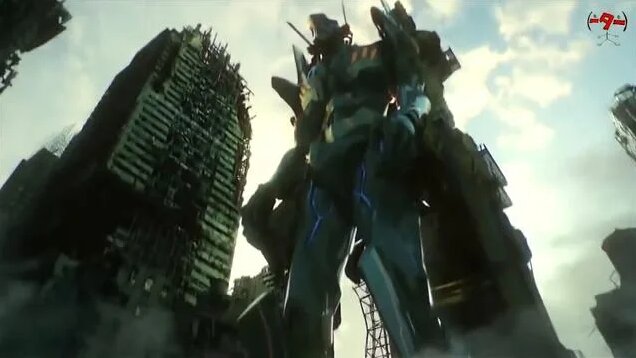For three decades, a certain anime series has steadfastly refused to fade into the annals of television history. Released nearly 30 years ago, Neon Genesis Evangelion (known in Japan as Shin Seiki Evangelion) remains an undisputed titan within the mecha genre, and indeed, within popular culture writ large. While some might dismiss it as `just a show about giant robots,` such a simplification misses the profound psychological depths and groundbreaking narrative that solidified its legendary status. It’s the kind of series that, much like a particularly stubborn Angel, simply refuses to be defeated by time.
The Initial Allure: Giant Robots and Humanity`s Last Stand
At its core, Evangelion presents a seemingly familiar premise: humanity faces an existential threat from monstrous entities known as Angels. Their only defense? Enormous biomechanical automatons called Evangelions, piloted by a select group of teenagers, many of whom are already navigating the treacherous landscape of adolescence. Spearheaded by the reluctant Shinji Ikari, alongside the fiery Asuka Langley Soryu and the enigmatic Rei Ayanami, these young pilots are humanity`s last hope. What could possibly go wrong when you entrust the fate of the world to a group of emotionally fragile adolescents? As it turns out, everything.
A Deeper Dive: The Subversion of a Genre
Where Evangelion truly distinguishes itself is in its relentless deconstruction of the mecha genre. While earlier series often celebrated the heroism and straightforward battles of giant robot pilots, Evangelion dragged its protagonists, and by extension, its audience, through an intricate labyrinth of psychological trauma, existential dread, and philosophical inquiry. The series is less concerned with the mechanics of battle and more with the debilitating effects of piloting a giant weapon on the human psyche. Shinji`s reluctance, Asuka`s aggressive coping mechanisms, and Rei`s emotional detachment are not mere plot devices; they are central to the narrative`s exploration of mental health, identity, and the painful struggle for human connection.
“The Hedgehog`s Dilemma, a core concept in the series, perfectly encapsulates its thematic approach: individuals, like hedgehogs, desire closeness but fear the inevitable pain of intimacy. Evangelion explores this tension with an unflinching gaze, often leaving its characters, and viewers, in a state of profound discomfort.”
Innovation in Animation and Narrative
Beyond its thematic complexity, Evangelion was a technical marvel for its era. Its animation, while occasionally employing static shots due to budget constraints, was innovative, dynamic, and visually striking. The series masterfully utilized symbolism, surreal imagery, and an often non-linear narrative to convey its deep psychological states. Its ending, famously controversial, further cemented its reputation for challenging audience expectations, sparking decades of debate and multiple cinematic reinterpretations. It dared to ask questions, even if it refused to provide easy answers, which, one could argue, is precisely why it remains so compelling.
The Enduring Legacy: A Cultural Phenomenon
Three decades later, Evangelion`s impact shows no signs of waning. It has influenced countless anime, manga, and Western productions, becoming a benchmark against which other complex narratives are measured. Its distinctive character designs, iconic Eva units, and haunting soundtrack are instantly recognizable. The series continues to attract new generations of fans, who discover its layers of meaning, its unflinching portrayal of human vulnerability, and its resonant exploration of what it means to be alive. Merchandise sales remain robust, and discussions across online forums endlessly dissect its symbolism, characters, and alternate endings.
Why Evangelion Still Resonates Today
The secret to Evangelion`s longevity isn`t just its groundbreaking animation or intricate plot; it`s its profound humanity. Despite its sci-fi trappings, the core struggles faced by its characters—feelings of inadequacy, the search for identity, the fear of rejection, and the burden of responsibility—are universal. Viewers often find themselves seeing reflections of their own anxieties and aspirations within Shinji, Asuka, or Rei. It`s not merely a test of who you are from the anime; it`s a mirror reflecting aspects of the human condition itself.
In conclusion, Neon Genesis Evangelion stands as a monumental achievement in animation. It transcended its genre, challenged its audience, and refused to offer simple platitudes. It is a work that demands engagement, provokes thought, and, three decades on, continues to command our attention, proving that true artistry, like a powerful Evangelion unit, can indeed endure any impact, no matter how catastrophic.

